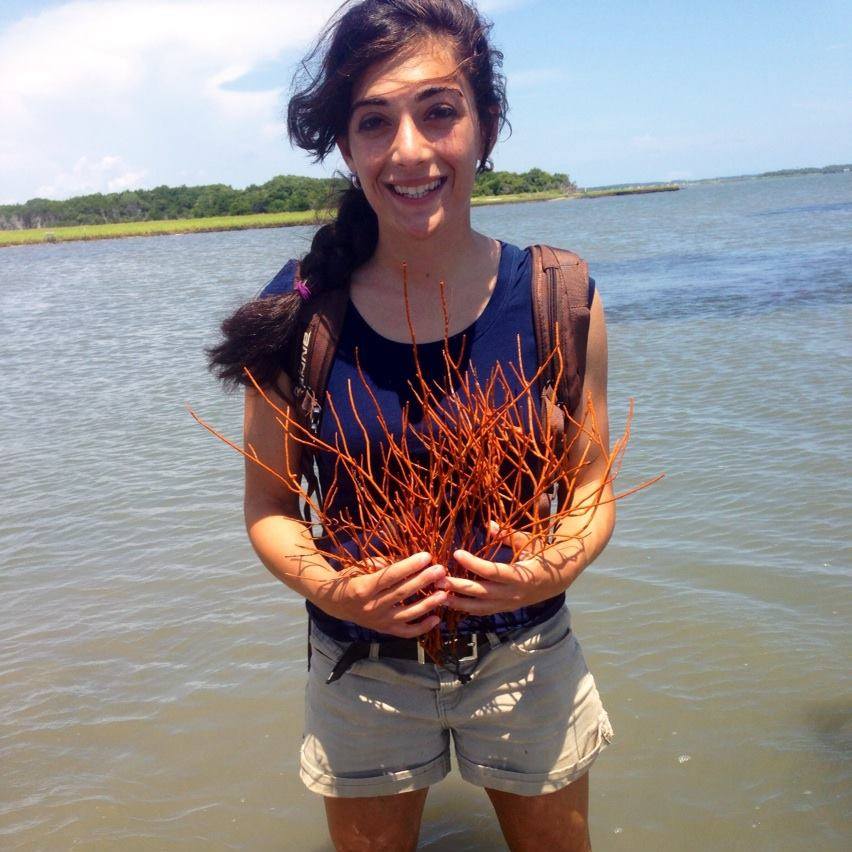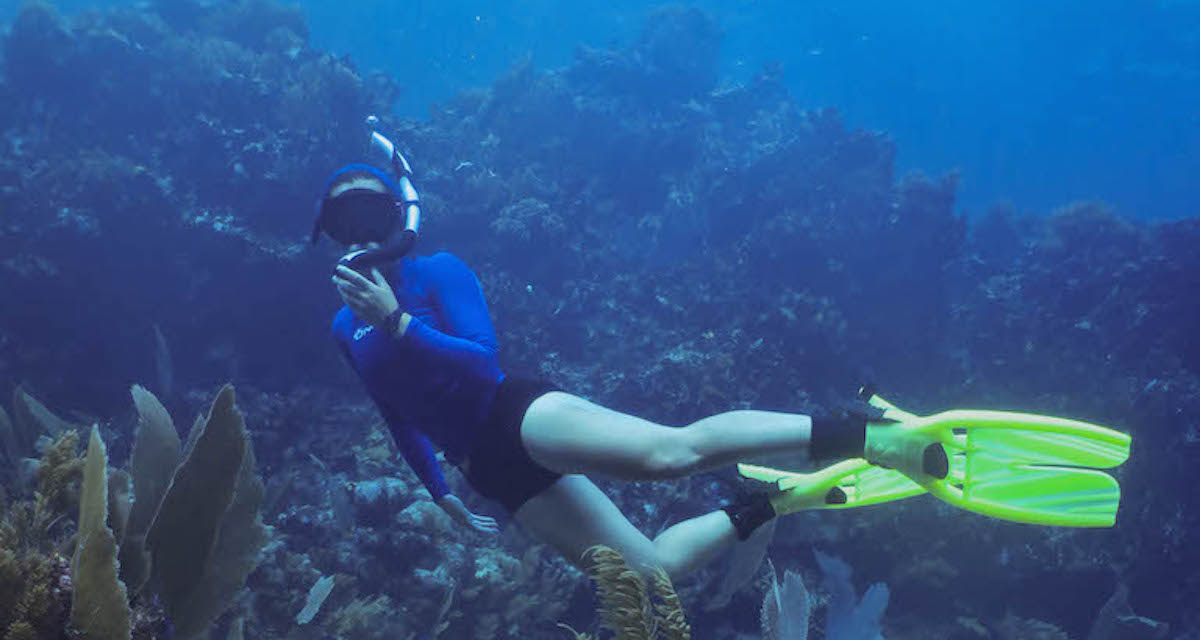Karina Scavo ’13: Continuing Creation Care
From scoring two goals in her first game on the Women’s Soccer team to studying algae in the local Essex Bay Region during the Marine Biology Institute and researching on a whale watch vessel, Karina Scavo ’13 was a dedicated student at Gordon.
Her steady drive hasn’t changed since graduation. Karina was granted a prestigious National Science Foundation graduate student fellowship and, in her second year as a Ph.D. student at Boston University, is studying coral reef conservation and restoration in mangrove environments.
Karina’s research has taken her to Belize to study—and combat—the harsh effects of climate change and pollution on coral reefs. “Reefs are in huge trouble,” she says. “They’re in a major global decline.” Last year, the National Oceanic and Atmospheric Administration (NOAA) declared the third annual bleaching event, a sign of serious deterioration. According to NOAA, bleaching occurs when increased ocean temperatures cause algae living on the coral to leave.
 Healthy coral reefs provide a wide range of benefits to people as well as to the organisms they support. Reefs also protect nearby land from storms and attract large numbers of fish, which are an important source of protein and income for local people.
Healthy coral reefs provide a wide range of benefits to people as well as to the organisms they support. Reefs also protect nearby land from storms and attract large numbers of fish, which are an important source of protein and income for local people.
In particular, many “developing countries rely heavily on fish from reefs,” says Karina, who studied biology with a concentration in marine biology (and maintained the Ken Olsen Science Center fish tank) at Gordon.
Scuba diving, snorkeling and other aquatic activities are economically important for many coastal nations, such as Belize. When corals are bleached, ecotourism potential decreases.
“Many fish use the coral for habitat,” Karina explains. “Some fish are colored like coral, so coral bleaching can make fish that are trying to hide stand out more.” If the coral doesn’t recover, “bleached coral can lead to dead coral.”
She adds, “Dead coral is not attractive to fish, which leave or die, and algae starts to take over.” Eventually, “no one wants to dive there,” and the economy suffers.
In response to the potential disasters that coral bleaching can cause, Karina has joined local Belizeans in coral restoration attempts. For her, this is not simply a nice-to-do, but rather an indispensable aspect of her work. She says scientists shouldn’t “do our own thing” without paying attention to the local inhabitants of the region they’re studying.
“It’s their home,” she says. “They’ve lived and interacted with the reefs all of their lives.” In partnership with Fragments of Hope, a local Belizean organization focused on restoring the reefs, Karina worked to revive underwater life.
There are two types of restoration, Karina explains. Passive restoration involves measures like “passing laws to reduce devastation, lower CO2 emissions and prevent overfishing.” Active restoration, the type she’s working on, means “actively growing coral and putting it back on the reef.”
In active restoration, scientists “harvest wild corals, break them up and propagate them.” When a coral is put on a rope near a reef, it can grow into a larger colony: “I could make ten new colonies from just one colony.”
In Boston, Karina’s lab is studying “the science behind” active coral restoration. “We’re working to understand whether there are more tolerant corals that can survive climate change,” she says, and they are also growing corals in the lab.
Another way that Karina has promoted coral restoration is through teaching. In Belize, she trained fishing boat captains to help survey coral populations. And as a graduate student teaching fellow, she has taught undergraduate students about marine ecology. “We teach them how to conduct research on the reefs in Belize,” Karina explains, and “they then get to carry out their own research project.”
“I really enjoy teaching,” she says. “I would love to be able to integrate teaching and research.” In the future, she would like to develop a similar program to take students to reefs for hands-on learning.
Karina’s own research experiences were enhanced during her undergraduate years. While taking the course Landscape Ecology, she examined the real-life relationship between organisms and their environments. For the final project in the class, she had the opportunity to study whales in nearby Gloucester.
Karina worked with Ocean Alliance and Cape Ann Whale Watch researching how landscape affects humpback whale behavior. Karina was well prepared for the experience by a previous summer spent volunteering on the same boat, when she helped with education and with data collection and worked to identify individual humpback whales.
While at Gordon, Karina also participated in the Creation Care Study Program in New Zealand. An important part of her experience there, she says, came from knowing that “it’s God’s creation” and “part of our Christian duty is to be stewards of it.” That’s a conviction which Karina lives out through her research.
By Morgan Clayton ’19, history
 The Bell
The Bell